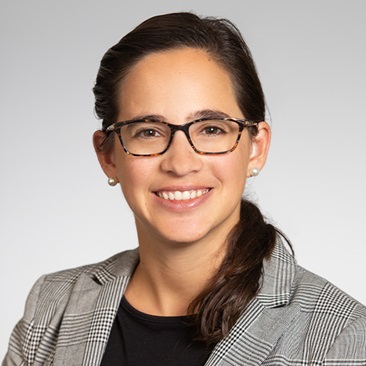Fairchild Receives Mellon Foundation Grant for Project Focused on Pandemic Backlash, Public Health
June 12, 2024
SU News
A project that uses humanities methods to document and explore pandemic backlash and the experiences of public health officials has received $1.25 million in funding from the Mellon Foundation. The multi-university effort involves historians and public health scholars based at Syracuse University’s Maxwell School of Citizenship and Public Affairs, New York University’s School of Global Public Health and The Ohio State University College of Public Health.
The three-year grant supports the creation of a unique oral history archive and course development focused on the history and ethics of public health pandemic response and faculty and doctoral student training that centers humanities knowledge and methods.
The educational and research resource will create “new, urgently needed, accessible opportunities for the humanities to speak to public health and broaden access to humanities higher learning opportunities,” says Amy Fairchild, professor at the Maxwell School, who is principal investigator (PI). Co-PIs are Marian Moser Jones, associate professor of health services management and policy at The Ohio State University, and Cheryl Healton, founding dean and professor of public health policy and management at the School of Global Public Health at New York University (NYU).
The research team has already conducted nearly 100 interviews with state and local health officials, delving into their experiences during the COVID-19 pandemic. A planned third phase of the oral history initiative will result in approximately 150 interviews from 40 states and two territories that will become part of a digital archive, “Stewards in the Storm,” housed at Syracuse University’s Qualitative Data Repository.
Widespread public and political backlash against protective health measures in response to the COVID-19 pandemic—and against those who were trying to implement those measures—has had a lasting impact on public health, including ongoing staff shortages and attempts to sharply curtail public health authorities needed to preserve life. In their initial rounds of interviews, the research team found that 36 percent of health officials reported receiving death threats, and 24 percent reported serious threats to their families—with women and people of color more likely to receive such threats.
The third round of interviews is important, Healton says, “because it ensures a resource with a broad, nationally inclusive sample that both researchers and instructors can use to conduct reliable, valid research and to develop strong humanities content in courses that reach both public health and humanities students.”
In addition to expanding the interviews, the researchers also plan to establish a hands-on “Backlash Lab” that will introduce students to the history and ethics of public health, oral history interviewing techniques, qualitative coding strategies and techniques, and quantitative analysis. The lab, anchored at Syracuse, Ohio State and NYU, will also create partnerships with colleges that have historically served Black, Hispanic or first-generation students. Students will code interviews and write case studies to be used in undergraduate and graduate courses as well as professional settings.
Additionally, a survey course, Pandemics: History, Ethics, Politics and Policy, will be developed collaboratively and offered at Syracuse, Ohio State, NYU and Cornell University, with the aim of extending it to other collaborating institutions and other schools and programs in public health. The course aims to cut across public health, public policy and the humanities with a focus on history, medical sociology and communications.
In years two and three of the project, the team will run two workshops for scholars teaching public health and humanities at community and four-year colleges and universities across the country, with a focus on institutions that have public health schools or programs. The workshops will introduce teachers to the techniques of oral history, suggest ways to work with the archive and extend the reach of the new course.
The project capitalizes on synergies between public health and the humanities and addresses common gaps in knowledge about public health history. “As important as easy access to primary documents related to pandemic responses are, we can further illuminate broader historical themes that enrich both the humanities and the field of public health by providing insight into peoples’ lived experiences of pandemics and pandemic response,” Moser Jones says.
“This rich body of narrative history does more than create qualitative data through oral history methods,” Fairchild adds. “Rather, it uses the experience of the pandemic as a lens that can clarify and contextualize the continuing climate of pandemic-associated backlash that has ongoing repercussions for pragmatic efforts to confront population health challenges, from reproductive rights to climate change. It is primarily the foundation for humanistic investigation into the ways in which governmental responses to crises are social products and reflect the societies in which people live and die.”
By Wendy S. Loughlin
Related News
Research

Dec 16, 2024
Commentary

Dec 16, 2024
School News

Dec 13, 2024

